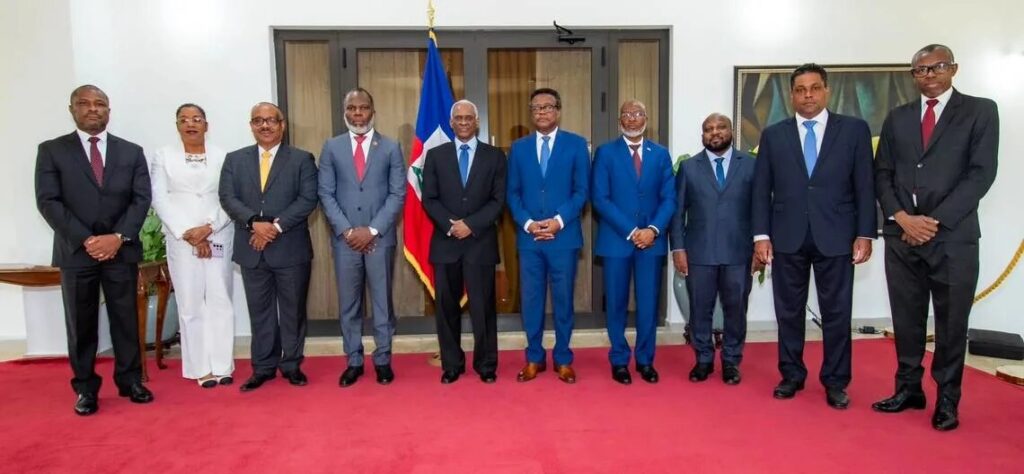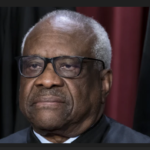PORT-AU-PRINCE — A bank bribery scandal involving members of Haiti’s ruling transitional government, which threatens efforts to stabilize the country through presidential elections next year, could not come at a worse time, according to an eminent group of former Caribbean leaders who recently visited the troubled nation.
The group, led by the prime ministers of the Bahamas, Jamaica and St. Lucia, says that if Haitians are to preserve the integrity of the ongoing political transition that was forged over the spring amid a deadly gang insurgency and deepening political, humanitarian and economic crises, there needs to be a “speedy resolution” to the corruption scandal and “a return to the ethos of the agreement” that was forged in Jamaica on March 11.
The agreement, formed with the help of the 15-member Caribbean Community regional bloc known as CARICOM, the United States and other nations was built on inclusiveness, consensus and accountability, the former prime ministers representing CARICOM said.
“Delays in installing the critical institutions, the need for greater effectiveness in attaining the major objectives in the allotted time, and the corrosive impact of the allegations of corruption have contributed to the fragility of the transition process,” the leaders said in a statement Tuesday.
The corruption allegations involve three of the nine members of the Transitional Presidential Council: Louis Gérald Gilles, Smith Augustin and Emmanuel Vertilaire. They are accused of demanding 100 million gourdes — or about $758,000 — from Raoul Pierre-Louis, at the time director of the state-owned commercial bank National Bank of Credit if he wanted to keep his job.
Pierre-Louis detailed the bribery attempt in a letter to Prime Minister Garry Conille, who later fired him and installed a commission to oversee the bank’s operations. The three presidential council members have denied the allegations, which are now under investigation by the government’s Anti-Corruption Unit.
In a country facing growing hunger, a collapsing healthcare system and spreading gang terror, the bank scandal has become a distraction as some political parties defend the accused and others demand their dismissal.
Jean André Victor, head of the Collective of Political Parties of January 30, who was among those who brought up the scandal during his meeting with the Caribbean leaders, said he told CARICOM that it threatens the political transition. Victor characterized the discussions with the group as “intense,” a word that has been repeated by others who also met with the Caribbean leaders. The Collective, along with the Montana Accord Monitoring Office, recently sent a letter to the head of the presidential council, Edgard Leblanc Fils, expressing their “deep concern” about the allegations and how they are being dealt with. Each group has representation on the council and have separately asked for the accused members to be removed.
During an interview on Port-au-Prince based Radio Magik9 on Tuesday, Victor said he’s heard that the accused council membes are threatening to expose other scandals within the transitional government, a move he regards as reckless.
Stopping short of joining the calls for dismissal, the Caribbean leaders recognized the damaging effects of the scandal on the transition.
“The inquiry of the anti-corruption investigative agency will be of critical importance,” the former prime ministers said, dismissing calls by two council members for the panel itself to investigate the accusations.
Prior to the formation of Haiti’s political transition, the prime ministers — Perry Christie of The Bahamas, Bruce Golding of Jamaica and Kenny Anthony of St. Lucia — were involved in negotiations to help Haiti forge a path out of the crisis. They were invited to visit Haiti by Leblanc to evaluate the transition and Haiti’s preparation for elections.
Christie was unable to make the trip. But Golding, Anthony and their supporting staff, including retired Caribbean diplomat Colin Granderson, found a transition plagued with problems: Leaders struggling to govern amid the corruption scandal, friction between the presidential council and the prime minister, and serious doubts about whether elections are possible next year.
On the same day the Caribbean leaders’ statement was issued, Haiti installed a new commander of its armed forces, Gen. Derby Guerrier. He replaces Lieut. Gen. Jodel Lessage. During the installation ceremony Conille and Leblanc said the change reflects a redoubling of government efforts to help the Haiti National Police combat armed gangs by invoving the armed forces.
Two months into the deployment of a Kenya-led security mission to Haiti, order has not been restored and gangs have expanded their territory. Gang leaders have tightened their hold on several communities on the outskirts of the capital while blocking roads to make it difficult for the Haitian and Kenyan police to deploy.
During their meetings over six days with various Haitian political and civic leaders, the former Caribbean prime ministers said they heard about the Kenyan mission’s difficulties in dealing with the violence.
“The common concern articulated was that the Kenyan force was both under-staffed and under-equipped and as a result lacked the capacity to hold reclaimed territory,” their statement said.
Conille is “acutely aware that the window of opportunity would not last long and that the people of the country expected delivery. He made it clear that the lack of resources and the breakdown of State institutions were impediments, but that efforts were under way to address the… issues that beleaguered the population,” the leaders noted. “The Prime Minister emphasized that, unless the issue of insecurity is resolved, progress in other critical theaters of government action would very likely be compromised.”
The former prime ministers said they are encouraged by signs that the presidential council appears to be making some effort to overcome the delays in putting in place a number of the key institutions required under the April 3 political agreement. This includes assembling a Provisional Electoral Council to begin organizing long overdue elections; a Government Action Oversight Organ; a National Security Council, and a National Conference.
The former prime ministers were also told about the estrangement between some groups and their representatives on the council. The leaders also said the bank corruption scandal has engulfed the country.
Privately, Caribbean leaders have expressed disappointment over Conille’s handling of the scandal. They have not made any recommendations on what the council should do. However, in the statement issued on Tuesday, the former prime ministers said “there was the common view” among Haitian groups that what is needed is “a reset and a reconfiguration” of the council.
“There was unanimity with regard to the concerns and issues raised — the inability of the State to improve security; disappointment over the lack of impact of the presence of the Kenyan forces; the erosion of public confidence in the [council], exacerbated by the corruption scandal, and strident demands for the three councilors to be withdrawn; increasing concern that because of delays, perceived as inaction, the transition process would not meet its deadline of February 2026 for the seating of an elected president.”
By JACQUELINE CHARLES/Miami Herald



